Andreas Bleckmann
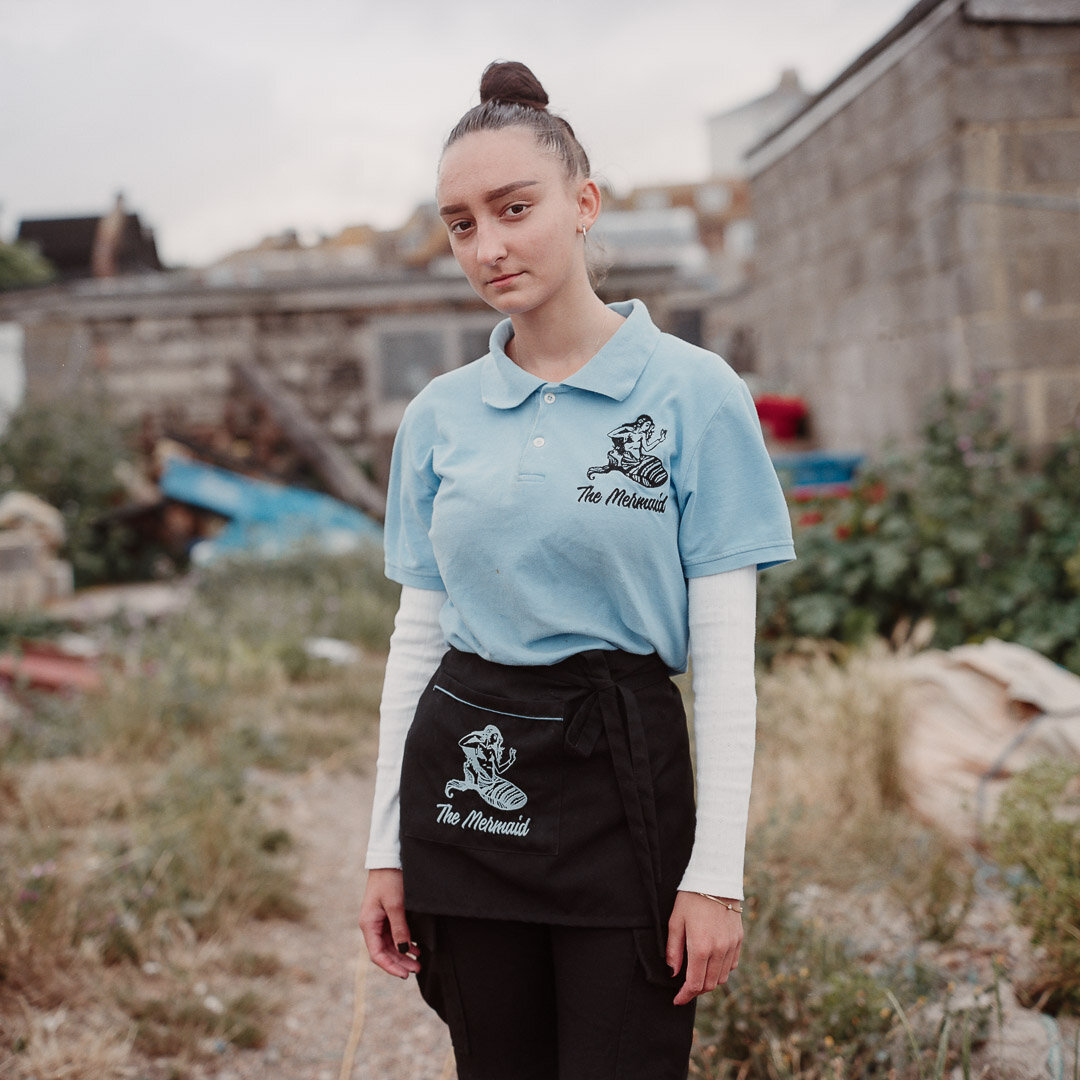
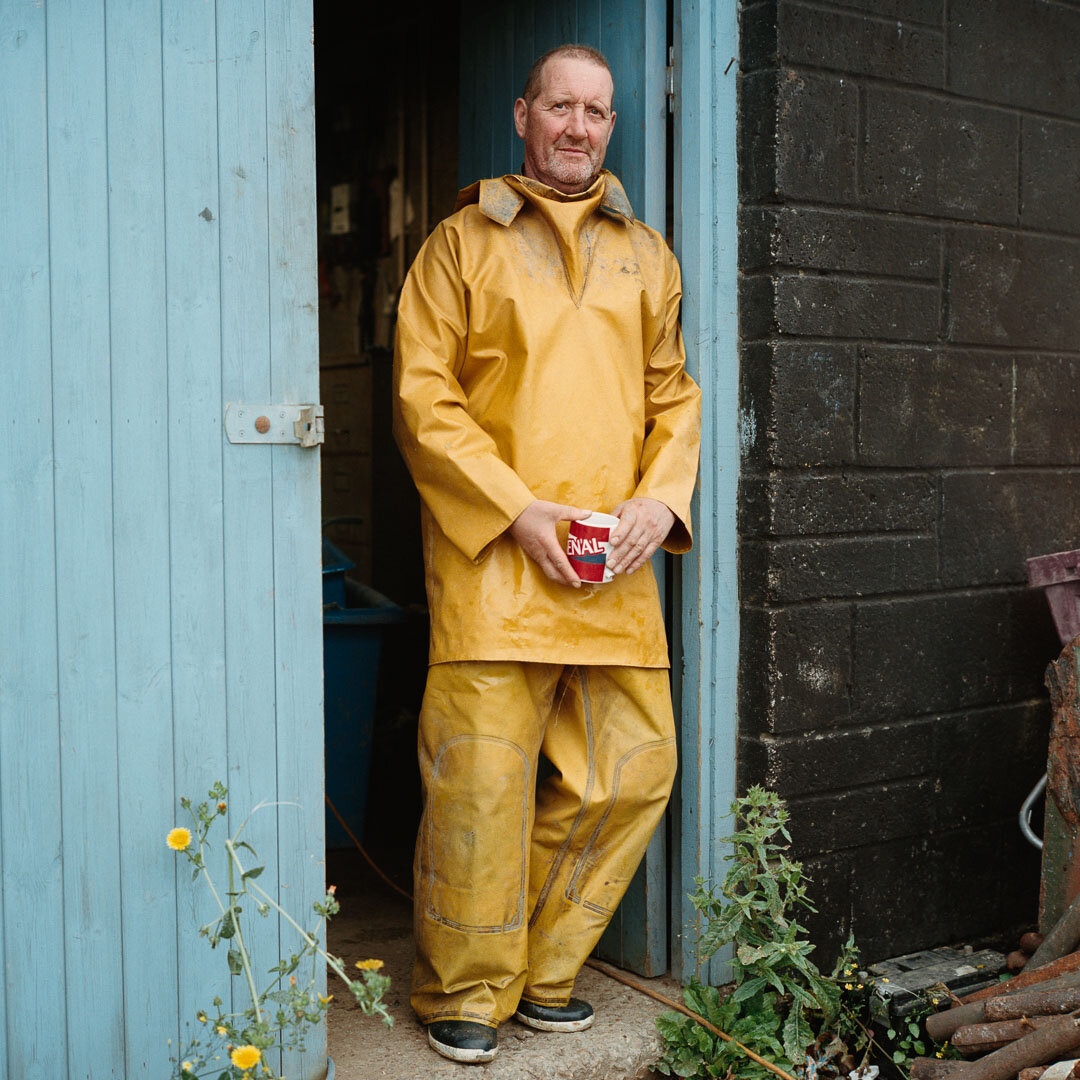
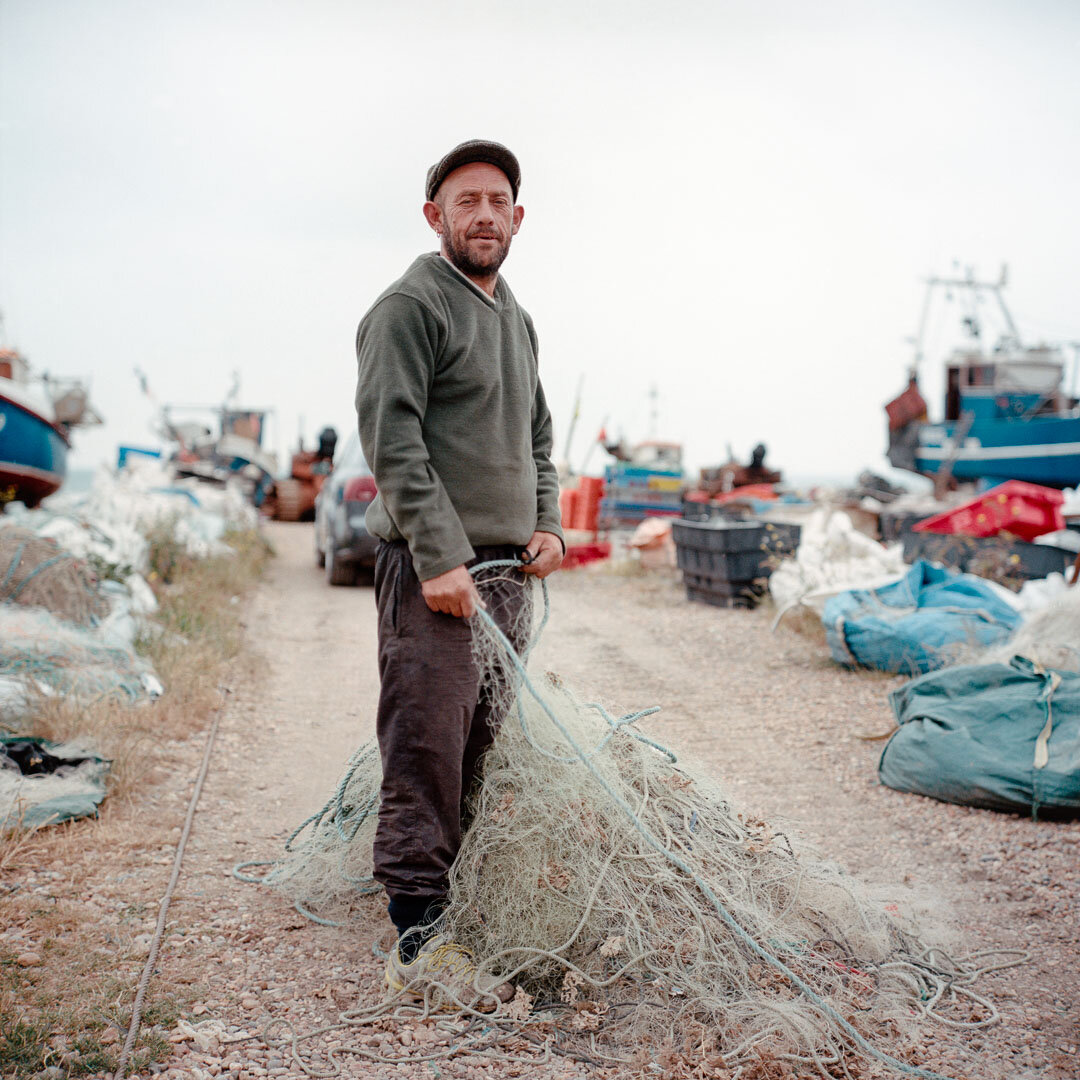
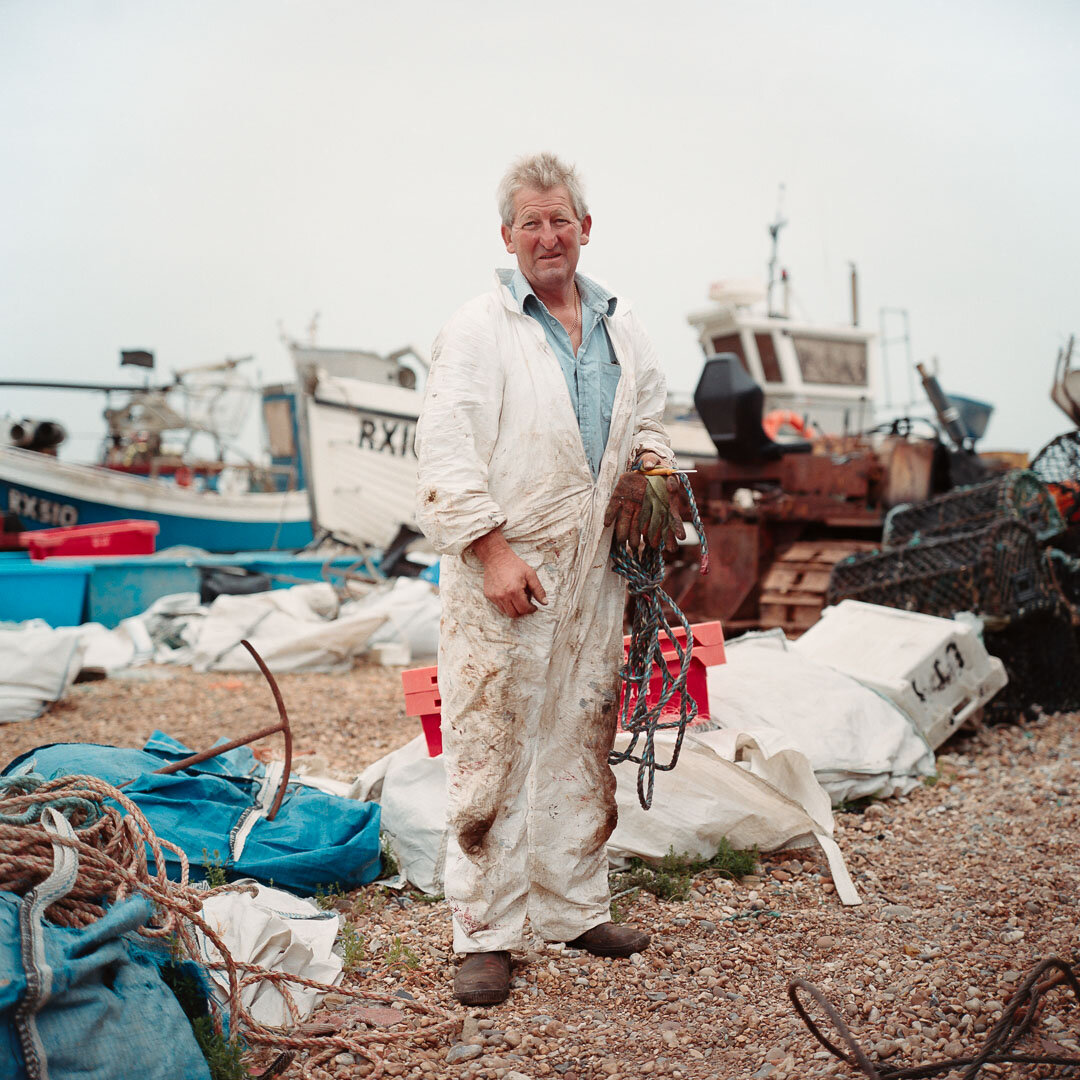
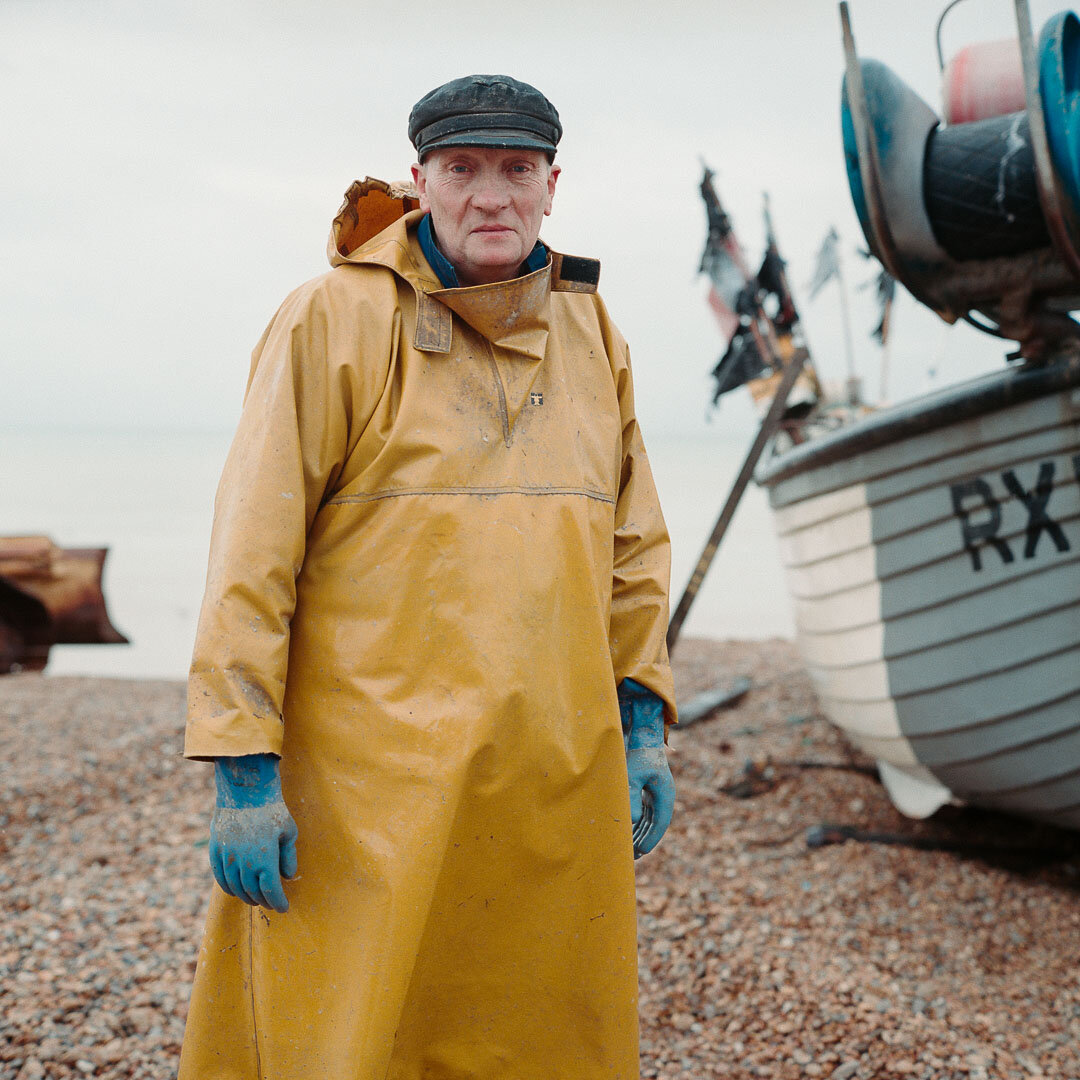
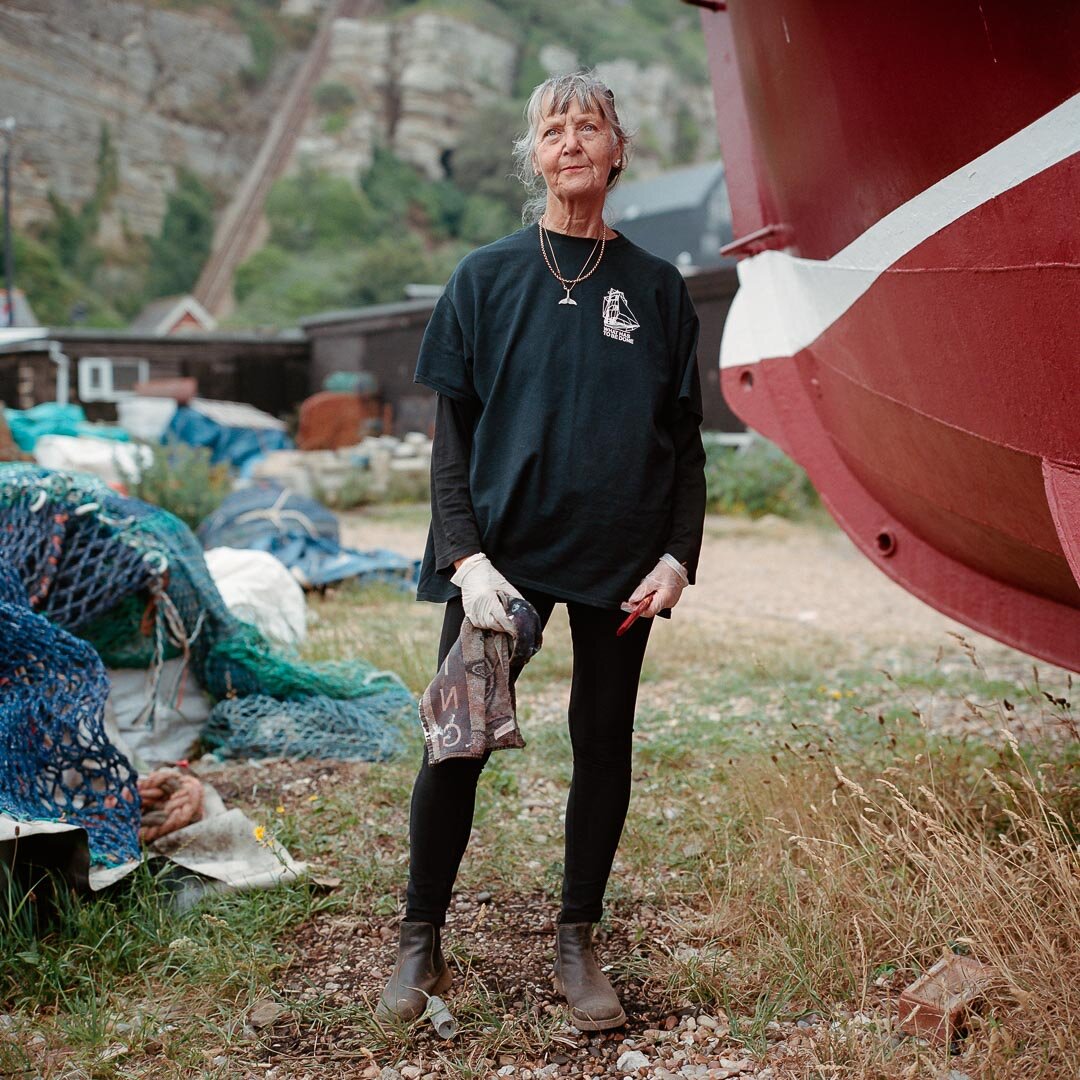
How did photography enter your life and how do you use it to navigate and communicate?
I’m a German born photographer, before moving to a small Seaside town on the south coast of England I spent many years working in New York and London. I am not a great verbal communicator and struggle with my hearing, but I found a natural fluency through my photography. When I arrived to New York in the mid 80’s I did various manual jobs but always knew I needed to create imagery in some way. The pivotal moment for me was when I went to see the Garry Winogrand retrospective at the MOMA. I realized that the people, scenes and compositions I was constantly seeing around me could indeed have a value and significance through photography.
What inspires you to approach someone and how do you engage them while you are choosing your composition?
My approach is very intuitive I’m not always aware of why I have to take the picture and it’s often only once the film has been developed that I realise the connection between the person and the environment. I’m a quick worker so I don’t need to talk for too long which is a blessing as I can’t actually hear much of what is being said. I compensated for my awkward communication with humour, it’s very disarming and usually disguises the unorthodox flow of conversation. My strong German accent and Rolleiflex camera is a good talking point. I always have a business card to hand as this is very reassuring in this era of mistrust.
What difficulties have come up in your creative journey? How did you overcome these roadblocks? How has failure turned into a positive part of your journey?
When I started my career as a photographer I had a very clear style, my portfolio was extremely focused and as soon as I relocated to London I was booked to shoot for The Face Magazine, from there I had a long spell of editorial success working internationally with many leading magazines, however with the rise of digital I started to become confused about who I was creatively, I left my agent and without their support and guidance the bookings became more and more commercial. I became disenchanted and frustrated with my work. Looking back, I can only describe what followed as my wilderness years, instead of shooting I focused my energies on helping my partner with her own business but I realise now that I used this as a distraction as I was no longer producing my own work.
It has taken me years to find myself again as a photographer, I have returned to film, I only use my beloved analogue Rolleiflex, which was stolen in a burglary but thankfully returned a year ago. All my other cameras are still missing so I took this as a sign. My work is once again focused and I feel stronger and happier. We moved out of London, bought an 1835 run down house by the sea in a gritty but beautiful area. Whilst renovating the building I have found myself working on a seemingly never-ending portrait project right here on my doorstep. I don’t know where this will take me, but I am sure I am on the right path for the first time in many years.
With being aware that you were using a distraction to keep you from creating your own work during a time of frustration with it, how has that time period helped you become self aware of this as to not procrastinate. What internal dialogue do you have with yourself to stay on your right path?
By having a simple focused approach to my work I can return to it time and time again without having a conflicting inner dialogue. I still have distractions throughout the day but my flow is not disrupted. I also have so much to photograph around me now that it’s easy to stay inspired and be a productive photographer. The work I’m doing now will evolve and I will introduce new locations and approaches but I know this will be a natural instinctive progression. I also have an end goal to work towards but its early days.
Can you share more about how having an end goal has helped you maintain momentum?
When I started on this current project I just wanted to take pictures that I felt strongly about, but as the body of work developed and expanded, it has become increasingly clear that an exhibition here in Hastings would be appropriate in line with publishing the project as a book. There is a big art community here, strong local support and opportunities to exhibit. This will be the first time I have had the confidence to consider this path. I have lots more work to do before I am ready, maybe even another year but with each day brings the possibility of taking better and better pictures and this spurs me on.
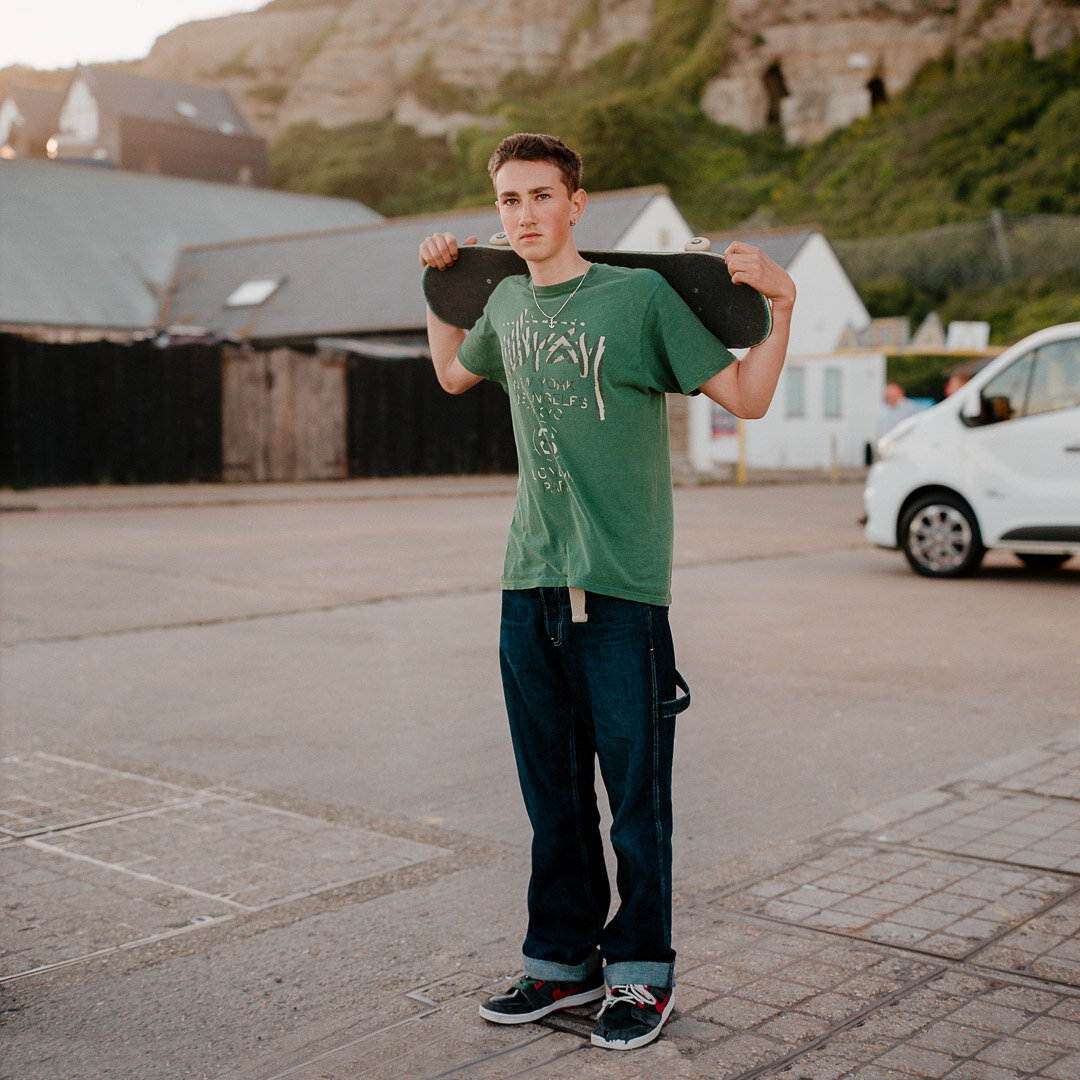
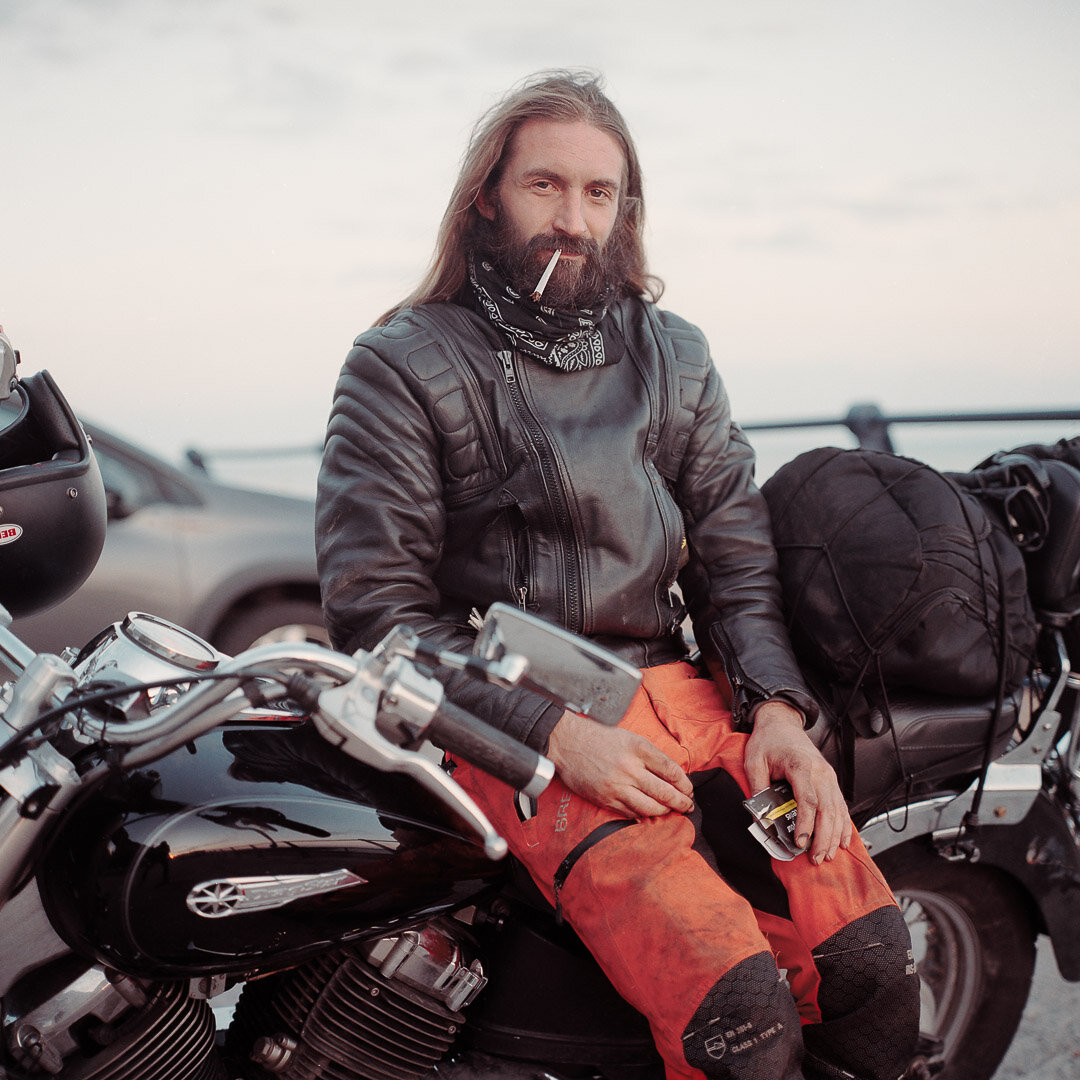
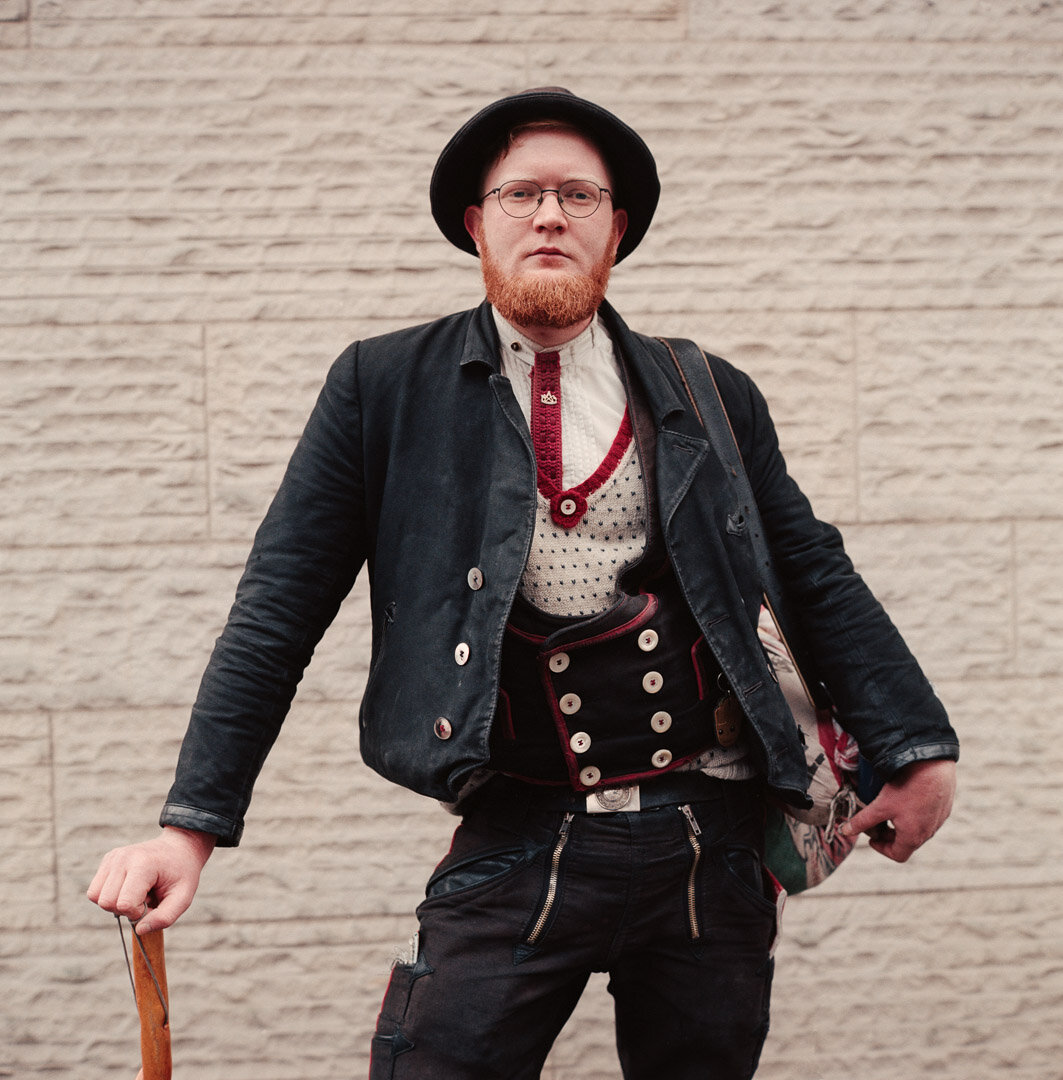
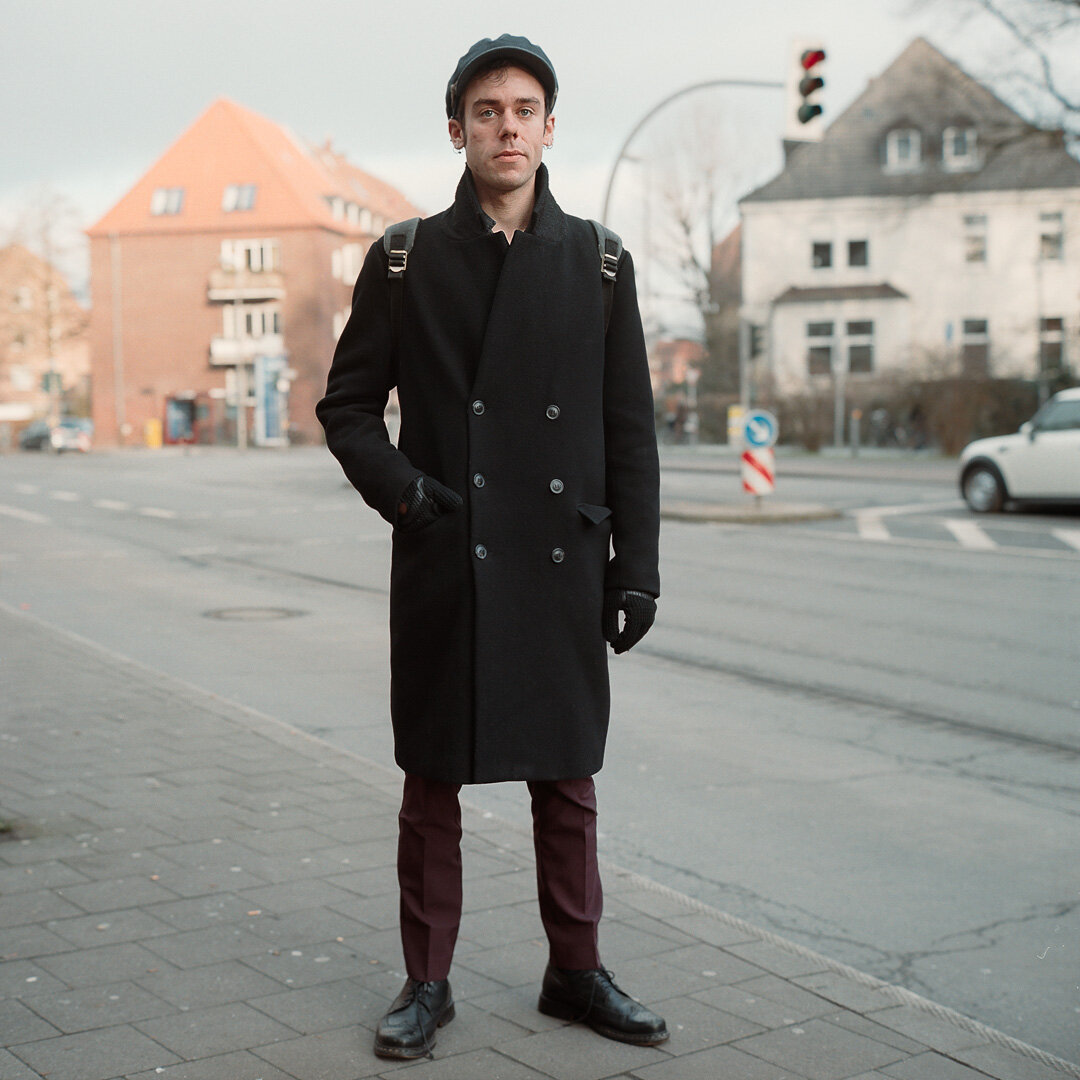
How has being hard of hearing been a positive part of your process? (I am asking because I have heart disease and I use to find it as a negative thing while growing up. As I have gotten older I have began to see how its really shaped my ability to connect with people. I can’t exactly pinpoint why. I just feel that it has.)
Its hard for me to describe how my hearing loss and speech problems have shaped me as it seems normal to me, but my friends and partner tell me how I approach people garners an unexpectedly friendly response. There are always a few painful seconds of silence when the recipient has to process what I have just said, most of the time the response is positive but it doesn’t always go well and that’s the moment my partner steps in. I think its more frustrating for people around me, as I’m not aware that I have just incorrectly answered their questions or spoken over their reply. I’m in my own happy bubble.
With the various locations you've been in, how has photographing locals helped you find a sense of home?
It has undoubtedly helped me to find a sense of home, I meet people I wouldn’t normally meet, they get to know me and recognise me. I have not always lived in areas that are particularly welcoming or safe but it has always allowed me to make small connections and record amazing characters that in many cases are no longer around.
To keep up to date with Andreas’ latest work follow along here:
Website
Instagram



